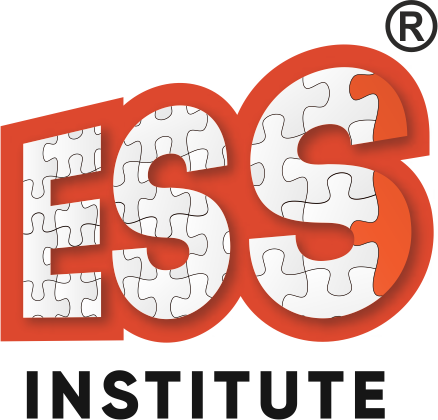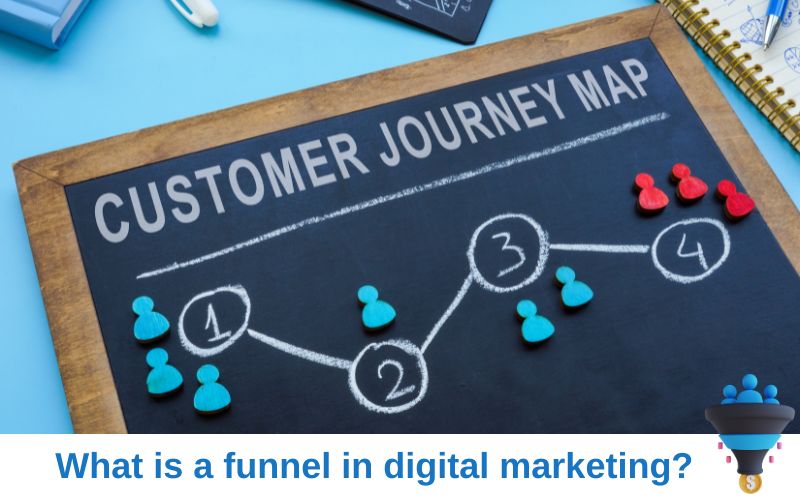A marketing funnel plays a very important role in guiding potential customers through their brand discovery process. This funnel is often referred to as the digital marketing funnel and it describes the various stages that a lead passes through before they become a paying customer. However, what does this mean? And, how can digital marketing funnels assist business enterprises in optimizing their digital marketing strategies? Let’s take an in-depth look into what makes a digital marketing funnel and the significance it carries towards a company’s marketing success.e use different devices. It applies to online shopping, watching movies, social media, and various other activities in the same way. We expect websites to run smoothly across all devices no matter what you’re doing. This is where responsive web design comes in. It brings many advantages to your Lives.
Introduction to the Marketing Funnel
A marketing funnel depicts the customer’s movement from wide awareness on one end to definite action such as buying at the other end. Therefore, not every visitor may turn into a buyer right away according to this concept. The concept behind this is that many people come in at the top (the awareness stage). Those who remain at the end will ultimately complete a purchase whereas some leave in the middle.
Once you understand the concept of the funnel, it enables you to refine your marketing strategies at each step of a buyer’s journey. This ensures that they find you, get interested in what’s being offered on your site and become your customers.
Why Marketing Funnels Matter?
Marketing funnels are more than just abstract concepts. They are actionable frameworks that help companies optimize their customer interactions at each step of the way. The marketing funnel has become increasingly relevant as customers become more empowered and do their research before engaging a brand.
Through a well-organized digital marketing funnel, firms can do the following:
- Optimize customer acquisition processes
- Improve lead nurturing strategies
- Personalize the customer experience
- Increase overall conversions and revenue
So in short, a good funnel makes it possible for businesses to not only to get new leads but also turn them into actual customers by giving them right information and experience at right time.
The Stages of a Digital Marketing Funnel
A typical marketing funnel has various stages that represent different phases of the customer journey.
1. Awareness Stage (TOFU)
The Awareness stage is the first and largest level of the marketing funnel. At this point, potential clients come to know of your product, service or brand. However, they might have little knowledge of what you offer but something catches their eye; this could be an advert, blog post or social media content.
Key Tactics for this Stage include:
- SEO and Content Marketing: Creating valuable, informative content, which solves the potential customer’s problem is essential for drawing traffic. Blog posts, videos, social media posts and eBooks are some of the effective types of content at this stage.
- Paid Advertising: The use of paid search ads or display ads on platforms such as Google and Facebook helps in expanding your brand’s reach.
An example of the Awareness Stage:
A person interested in learning how to start a blog could stumble upon a blog post by a website hosting company. This post acts as an entrance to the funnel while making people aware of the company’s services.
2. Interest and Consideration Stage (MOFU)
After awareness comes Interested and Consideration in the digital marketing funnel. At this step, prospects have identified their problem and are actively seeking solutions. They may compare multiple products or services to choose what may be the best for their needs.
Key Tactics in the Interest & Consideration Stage:
- Email Marketing: Attract potential customers through drip email outreach by sending them customized emails that makes them understand why your solution is better than others.
- Case Studies and Testimonials: Sharing actual examples of how your product or service has assisted others could give confidence to would-be buyers.
- Webinars and Product Demos: Offering webinars event or demo sessions aids in enlightening your audience concerning different traits that are unique only to your product.
Example of the Consideration Stage:
For instance, a prospect looking at different email marketing platforms could opt-in during one of these webinars organized by an organization so that he/she may learn more about it from various demonstrations as well as its competitive analysis.
3. Decision Stage (BOFU)
During the Decision part, potential customers may be willing to make the purchase but still require encouragement for conversion. It is the narrowest point in the funnel since a lot of prospects have dropped off on their way, just leaving the most interested ones.
Some Key Tactics for the Decision Stage
- Free Trials and Discounts: Presenting time-limited free trials or exclusive discounts can push undecided prospects into action.
- Customer Reviews: Positive reviews and ratings from other customers can serve as strong social proof validating the potential buyer’s decision.
- Retargeting Ads: Engage retargeting ads as reminders to prospects who are interested in your product especially when they visit your site without making any purchases yet
Example of Decision stage:
For instance, a person who is contemplating buying an online course may get an email offering them 10% off will be encouraged to register the same day.
4. Post-Purchase and Retention
There is more to the customer journey than buying products. In a complete digital marketing funnel, it is crucial to use retention and loyalty-building strategies to maximise customer lifetime value.
Post-purchase Stage Key Strategies:
- Customer Service And Onboarding– To ensure that those newly introduced products succeed in their usage, excellent customer service and onboarding materials need to be availed which increase contentment and chances of repurchases by new buyers.
- Loyalty And Upselling– Giving away reward points to returning customers through loyalty programs or providing up-sell opportunities are important aspects of maintaining long-term relationships with clients.
Post-Purchase Example:
For example, after purchasing a SaaS product someone could receive emails teaching them about software’s important tips and then later inviting them again to upgrade to a full-service HTML5 editor.
Why Understanding the Marketing Funnel Stages is Crucial
Businesses can lead customers through their journey successfully by comprehending and enhancing every marketing funnel stage, hence increasing the likelihood of conversion. By tailoring each stage to meet its user’s needs, businesses can also nurture leads more efficiently.
Examples of Marketing Funnels at Work
To give a clear illustration of how the marketing funnel operates in real-life situations. Here are some examples of marketing funnels from different industries.
SaaS Marketing Funnel Example:
- TOFU: A prospective customer discovers a blog post talking about productivity hacks hosted by a time management software company.
- MOFU: The client enrols in a free webinar on maximizing productivity using specific tools.
- BOFU: This company then gives away its time management software as a free trial followed by an email campaign offering a discount for the paid version.
E-commerce Marketing Funnel Example:
- TOFU: Someone interested in buying stylish sneakers sees an Instagram ad for them and follows the link to a specific store’s page
- MOFU: The shopper adds the sneakers into a cart without buying them, which triggers a retargeting email that provides free shipping
- BOFU: The customer uses a follow-up discount code when they come back to site thus completing the purchase
Working on your Funnel with Digital Marketing Tools
One of the best ways to optimize a digital marketing funnel is by using appropriate tools for consumer activity throughout its stages. For example, platforms such as Google Analytics, HubSpot, or SEMrush give businesses an opportunity to monitor whether their plans are working out well or not then modify them accordingly.
Measuring significant figures such as conversion rates, cost per lead or even customer lifetime value can enable marketers to know more about when leads are dropping off in their funnels so that they may find ways of re-engaging them.
Practical Examples of Funnels Across Different Channels
- SEO Funnel: One way that organic search content can be used as an introduction to the SEO Funnel is by funnelling traffic via informative blog posts or guides.
- Social Media Funnel: The Social Media Funnel is another way through which paid and organically driven campaigns could be used to get brand exposure with retargeting ads pushing leads down the pipeline.
- Email Funnel: Email marketing campaigns enable lead nurturing, using customized content for individuals at various stages in the marketing funnel.
As you can see, analysing and exploiting the digital marketing funnel remains an important step in converting leads and growing the enterprise. Therefore, it is important to develop a clear plan of action for improving the effectiveness of marketing strategies.
Do you wish to progress your skills in the use of digital marketing, especially involving funnel-building strategies? Learn by doing marketing activities, rather than only studying.
Take one of the best digital marketing course and focus on learning how to convert and optimize funnels better. ESS digital marketing institute in Delhi offer the best marketing courses where you can learn all about funnel building to grow your business.

